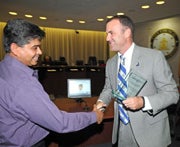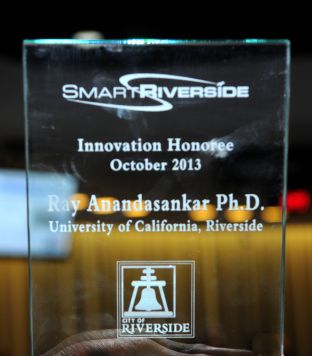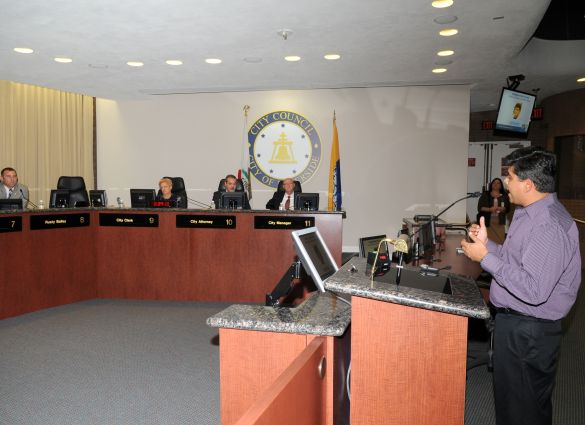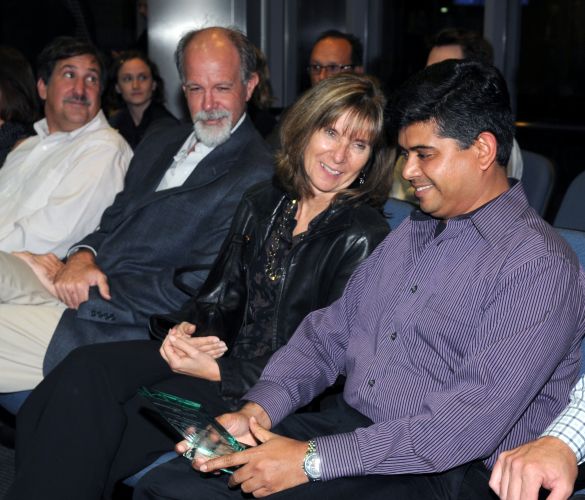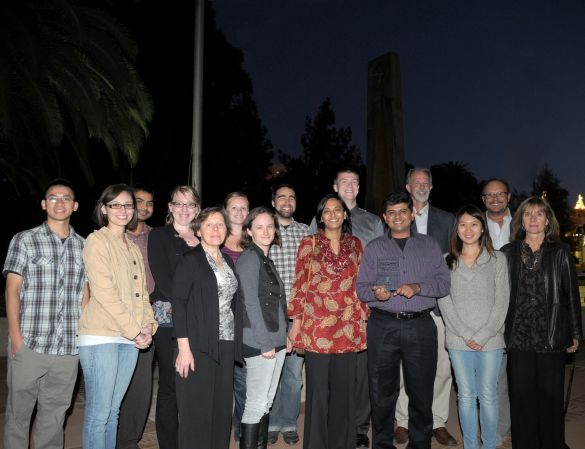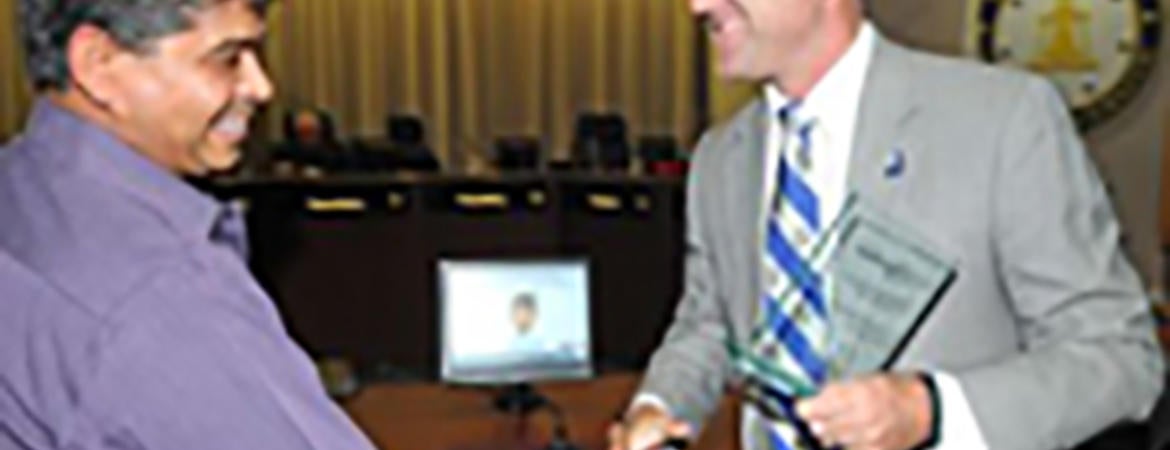
The University of California, Riverside’s Anandasankar Ray was recognized yesterday (Oct. 8) as the Innovation Honoree of the Month by the City of Riverside.
Ray, an associate professor of entomology, received the award from Mayor Rusty Bailey.
In 2010, with help from UC Riverside’s Office of Technology Commercialization and the Innovation Economy Corporation, Ray founded Olfactor Laboratories Inc. (OLI), in Riverside. The company is dedicated to insect research, identifying the best odors for behavior control and designing products to protect people from mosquitoes.
Research performed initially in Ray’s laboratory — the identification of volatile odor molecules that can impair, if not completely disrupt, mosquitoes’ carbon dioxide detection machinery — led to the research and development at OLI of the Kite Mosquito Patch, the world’s first product that blocks mosquitoes’ ability to efficiently detect carbon dioxide, their primary method of tracking human blood meals.
In the City Council Chambers, where Ray was honored yesterday, he said he was pleased to see research get translated into a product that makes it to market.
“It’s the interest and enthusiasm from the university — professors, postdoctoral scholars, students, the vice chancellor for research — that helped us create a new startup company in the Riverside area,” he said. “I thank the city for the support it gives startups to set up here.”
Ray received his Ph.D. in molecular, cellular and developmental biology at Yale University. He joined UCR in 2007. The main focus of his laboratory is to understand the molecular, neuronal and physiological basis of insect olfaction and behavior.
He is a recipient of several awards including the Polak Young Investigator Award in recognition of innovative research and the John Spangler Nicholas Prize for outstanding doctoral candidate in Experimental Zoology, Yale University. Funding for his research comes mainly from the National Institutes of Health.
Recently, Ray disclosed a new invention: alternatives to DEET that can be used as insect repellents. These compounds, all of which are found naturally in fruits, plants or animals and activate the same antennal cells in flies as DEET, are approved by the Food and Drug Administration for consumption as flavors or fragrances. They are affordable and safe for human use.
Anandasankar Ray addressed the Riverside City Council before receiving the award. Photo credit: Michael Elderman.
Linda Walling (second from right) congratulates Anandasankar Ray. To her immediate right is Peter Atkinson; to his right is Michael Pazzani. Photo credit: Michael Elderman
Several faculty members and students attended the award ceremony. Photo credit: Michael Elderman.
